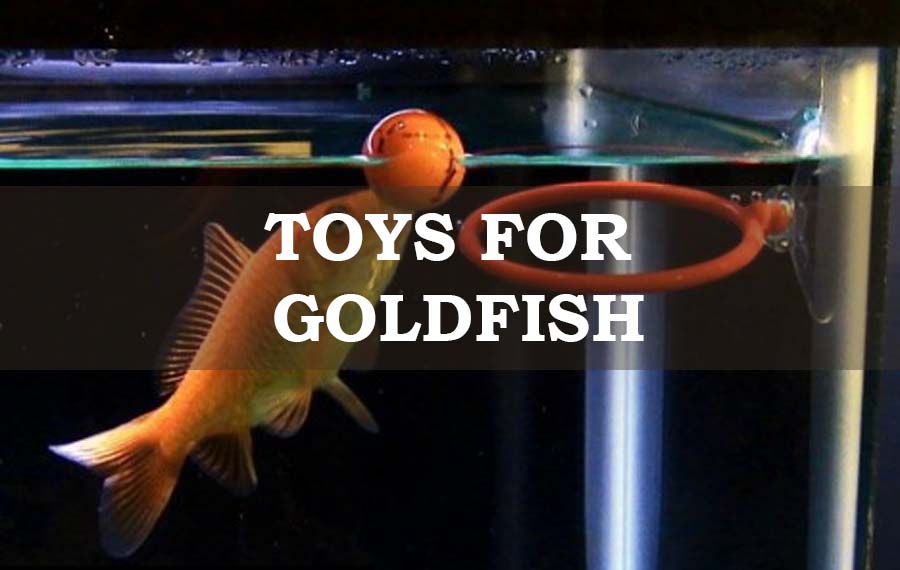Herons feed on fish and other aquatic animals. If you stock your pond with small and medium size fish, they can be easy prey to herons. Some herons can eat 7 inches koi easily.
Facts: A heron can eat up to 1lb fish a day
Therefore, keeping the herons away from your pond is a must work for you as a pond owner.
Hopefully, there are some effective ways to do that. In this article, I will show your how you can heron proof your pond in the most suitable yet effective way.
Table of Contents
How To Heron Proof A Pond
It’s not legal to kill or trap a heron as they are a protected animal species.
But you can scare and shock the heron or deter them to prevent them from eating your fish. You can follow these methods to do that –
Add Heron Decoy in Your Pond
This method is the most popular and one of the easiest. You’ll need plastic heron decoys for this method. Blue heron decoy and grey heron decoy are mostly used.
Get some heron decoy and place them by your pond side to deter other herons.
So, how does it work?

Well, when it comes to fishing spots, herons are very solitary and territorial hunters. So, they do not like eating with the company of other herons. As a result, when you are placing plastic herons in your pond, the live herons will think some herons are already hunting fish there and they will not land on your pond
This method works well when the heron is not familiar with your pond surrounding, but it is seen that most of the time herons figure out that this decoy is not a threat for them. Eventually, these decoys don’t work if the herons figure out the trap.
Decoy herons work very well with other heron deterrents and it’s a cheap option. Other decoy birds like a plastic owl can be placed alongside the decoy herons and it will also scare off some feathered predators.

Another good option for a decoy is the alligator decoy. These particular decoys are designed based on how the alligators swim through the water to hunt their prey. Alligators are a dangerous predator to herons, so this method can work for preventing herons from eating your pond fish.
You need to put these alligator decoys around your pond bank where the herons usually land and this will scare them off.
Pond Netting For Heron Proofing Your pond
Pond netting is the best possible way to prevent herons from taking fish from your pond and also it is a simple method.
Pond net covers are very effective for pond safety as they’ll protect your pond fish from jumping outside the pond and it has other benefits. Herons need physical contact with the fish to eat them and when you are using pond net covers, they won’t be able to reach your fish.

You can use your pond cover nets in floating or raised form, both methods will work as long as you are taking good care of the netting and maintaining it properly. Although floating netting is sometimes preferred because it’s more discreet than the raising type.
To cover your pond with pond netting, keep the net tight across the pond, and hovering it a few inches above your pond water surface, it is the best way to do pond netting. By doing this any leaves that fall on the net, will not be touching the pond water and polluting it, those leaves will stay high and dry.
Make sure that the whole pond water surface area is covered with the net. Because even six inches of a gap will be enough for herons to hunt the fish from your pond.
Not only herons but also otters can slide into your pond and take some fish away if they find any pond area which is not covered by the net. So you just need to cover the whole area edge to edge to secure your pond fish from herons, otters, and other wild animals out there.
Other deterrents such as decoy heron become less effective if the herons get used to the environment. But pond netting is a method that creates a physical barrier between the heron and the pond fish. So, if you install pond netting carefully, with proper maintenance, your pond fish will be saved from herons.
Fish Shelter
A fish shelter is a hiding place for your pond fish. The fish shelter is placed at the bottom of your pond and which will provide a safe place to hide when some wild animal attacks your pond fish.

When you are using fish shelters in your pond, pond fishes will be accustomed to using it as a hiding place. If your pond doesn’t conclude a shelter or hiding place, the pond fish will be stressed whenever herons or any wild animals attack. When the pond fish are frightened, they try to hide at the bottom of the pond and without shelter, it will be hard for them to hide in pond plants.
Shelters for your pond fish are a cost-effective option and creates a solid cover for your pond fish, it will help them to re-treat and de-stress.
These fish shelters will not scare away the herons but they’ll save your pond fish from eaten by herons.
So, you should use fish shelters in your pond if it doesn’t have a natural hiding place alongside other heron deterrents and it will save your pond fish from predators.
Pond Fencing
Pond fencing is another popular and effective method for heron proofing a pond. All you need to do is install pond fencing around the perimeter of your pond because if you can stop herons from landing on the sides of the pond, they won’t be able to hunt your fish. People use wires for covering the pond perimeter like fencing.

Pond fencing is hard to maintain compared with other deterrents like netting or decoy and sometimes they are more noticeable. If you are using wires, it will be effective to stop predators but they are not very distracting visually.
Another alternative of pond fencing is using low-voltage electric fencing. This method is very effective even for the herons which are very much stubborn to hunt down your pond fish.
As this fencing holds low-voltage electricity, it won’t hurt the heron, it will just provide a small shock. When the heron or any predator will come near the electric fencing, a small shock will scare them away and they won’t try to come back after such shock.
This electric fencing is costly and harder to install, also you need to maintain it very precisely. So, the typical pond fencing is mostly used rather than the electric one. If you feel like there are too many herons to handle, you can install electric fencing, other than stick to the regular pond fencing.
Heron Sprinkler
Using automatic sprinklers to give shock or spook to the herons is an effective method as it can give a shock to the herons constantly. If you want the herons to never come back, then you need to shock them constantly and as they are a skittish animal, they won’t be coming back after some spook.
These automatic sprinklers are used in gardens to scare away wild animals as they can damage the plants and these sprinklers can work pretty well as a heron deterrent too.
You need to place automatic heron sprinklers around the perimeter of your pond where the herons usually land. Whenever a heron will come near the sprinkler, it will detect the heron’s movement with sensors and start spraying water at the herons. This will scare them off well.
This method also works for other animals, mostly for cats as they also hunt silently like herons.
Ultrasonic Repeller For Animals
Like the automatic heron sprinkler, ultrasonic repellers will also scare the herons away from your pond using sensors and speakers.
These repellers produce a sudden sound to scare the wild animals away. Low-pitched ultrasonic devices and sound recordings are the two types of ultrasonic animal repellers.
Low-pitched ultrasonic devices produce sounds that humans won’t hear, these sound waves are picked by animals like cats, dogs, and herons. Although this device sometimes doesn’t work for herons as they work pretty well with cats and dogs.
Sound recording ultrasonic repellers are stored with a loud noise like gunshots to which animals are naturally wary about. Whenever a moving particle approaches these devices, it’ll create a loud noise and scare them away.
This method is not very popular and can come out with multiple downsides. But if you want to try this method, it’s worth a shot.
Reflecting Mirrors And Flags
Almost every heron proofing method is based on a simple principle that is scaring them away. It’s a common method using reflectors, flags, or mirrors in a field to stop wild animals and can be used guarding the pond against herons too.
Sometimes this method is overlooked as it works better in small garden ponds. If you put mirrors on the side where herons usually land, they’ll see themselves in the mirror when approaching the position. This will scare them away from your pond.
You can use flags with a picture of some higher-level predators that will spook the herons too. You can combine both mirrors and flags, that’ll help to deter heron more effectively.
A comparably new and upgraded method is using laser deterrent for herons. When these deterrents detect movements around your pond, it will create bright flashes and startling sounds to scare the incoming herons. This method is effective and getting popular for heron-proofing a pond.
Avoid Things That Attracts Heron
- Easily accessible water surfaces should be avoided. Always try to use a combination of various deterrents to guard the pond perimeter well.
- Your pond area shouldn’t have a clear all-around view because it will make it easier for the herons to spot your pond. You need to make your pond area enclosed with plants or concrete and such.
- Your pond water level shouldn’t be very close to the top of the bank. When the water level is not close to the top of the bank, then it will be harder for herons to hunt for fish. Keep a gap of 60cm at least between the top of the bank and your pond water level. Having a vertical-sided pond is also effective.
- If your pond water is very calm and clear, it will be easier for the herons to take fish from your pond. You can install a fountain to create some constant waves which will make it harder to spot fish for the heron.
- You can use artificial lily pads to create vegetation in your pond. It will provide a natural cover for your pond and also help to oxygenate the fish.
- Do not overflow your pond with fish or the fish in your pond will become more visible.
Frequently Asked Questions
How Do I Keep Herons Out Of My Pond?
You need to install a heron deterrent such as netting, decoy herons, etc. I’ve described various deterrents in this article, a combination of many deterrents will get you the best result.
Can A Heron Puncture A Pond liner?
Pond liners tend to get damaged very often. There are records that herons do damage or puncture the pond liner as well as other wild animals. The ducks in your pond can also puncture the pond liner.
Will A Heron Attack a Human?
Herons are a shy type of bird and they mostly run away in the presence of humans. Sometimes they can attack you if it’s been provoked. But humans are the one that bears more threat to them.




I had a lot of fish eaten two years ago and I decided to fill the bottome with pvc pipes, white and haven’t lost a fish since.